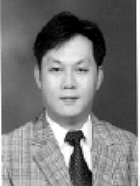
(Journalism)
I receive e-mails from students almost everyday. Not only those who currently take my classes but also those who have already graduated bring me the news through e-mails. In their letters, I read their faces. Frequently, their faces are full of fragrance. Some are not.
The origin of the fragrance comes from respect for others. Letters with no frangrance have frowning faces. Such lack of scent comes from different means of expression. I do not think that the students who send these e-mails don’t respect me. They might not know how to use the right expressions.
The most basic forms of expression is built through education recieved at home and at school.
The diverse encounters made through the process of growing up also has great influence. The recent forms of expression is also deeply connected with the vastly growing means of communication. These technologies are shaping the forms and speed of the encounters.
Cell phones, which seem to have become an extra limb, do not give a person time to think before being forced to answer. Text messages make people write instead of speak. In the process, the spoken language and the written language get mixed up immediately. These are the characteristics of the neo-Homo Telephonicus. And these traits show up in e-mails, even those that require one to take deep breath before writing.
Some titles of the e-mails from my students read as though they had been sent by my friends. Especially, those e-mails that don’t use honorific titles make me feel unpleasant. Some students finish their mails just throwing me a few questions or even asking for an early reply in a commanding tone. Whenever I receive those e-mails, I close the mailbox and begin to think to myself, “what have I done to be treated so rudely?’”
When elders wrote letters, they used to work hard to polish the words by thinking from the the receiver’s point of view. However, time has changed and a handwritten letter is not so common today. Nevertheless, one thing never changes. It is the fact that your expression is your face whether it is written on paper or on a computer screen. I want students of Ewha to keep their lovely face. It is because their face reflects their personality. I truly want them to give their fragrance to a lot of people with their lovely face. I believe that people who smell the fragrance will surely bring it back by adding better scent. I want Ewha students to be the starting point of spreading the fragrance so that a lot of people can enjoy the heartwarming feelings without any misunderstandings.
I ask you all and myself this: what is the expression of the person in front of the monior?
Professor Lee Gun-ho is a associate professor at Ewha. He worked as a reporter for the Columbia Missourian, The Washington Times and Chosun from 1992 to 2006. He received M.A. in Journalism from Missouri-Columbia University and a Ph.D. from University of Texas-Austin. He majored in the Department of Philosophy from Korea University and wrote eight papers and books including Agenda Setting Effects in the Digital Age: Uses and Effects of Online Media.

